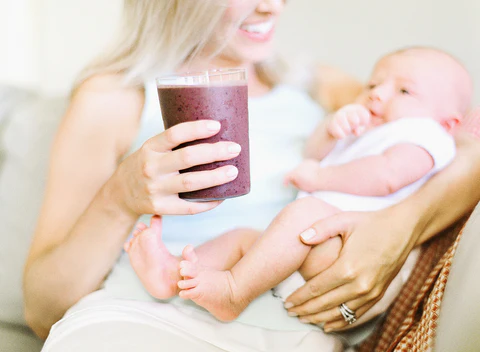How to take care of yourself after delivery?
Bringing a new life into the world is undoubtedly one of the most incredible experiences a person can have. But while everyone is quick to focus on the joys of motherhood, we often forget to acknowledge the physical and emotional toll that giving birth can take on a woman’s body. After all, pregnancy and childbirth are not easy feats, and the postpartum period can be just as challenging. That’s why it’s crucial for new mothers to prioritize self-care during this time. Taking care of yourself after having a baby isn’t selfish; it’s essential for your well-being and that of your baby. So, let’s explore some helpful tips to help you navigate this exciting but challenging new chapter of your life.
Tips To Take Care Of Yourself After delivery
Rest
Rest after giving birth is crucial to allow your body time to heal and recover. Your body undergoes significant changes during pregnancy and childbirth, and it needs time to rest and recuperate. Before your baby arrives, try to make arrangements to minimize any stress and responsibilities during the first few weeks after delivery. This can include having someone help with household chores or cooking, or arranging for childcare for older children.
It’s important to listen to your body and rest when you feel tired or exhausted. This means taking breaks throughout the day and avoiding any strenuous activities. Your newborn will likely sleep for several hours throughout the day and night. Take advantage of these periods to get some rest, even if it means napping during the day.
Eat a healthy diet

Focus on eating a balanced diet that includes plenty of fruits, vegetables, lean proteins, and whole grains. This will help provide your body with the nutrients it needs to heal and recover. If you experienced significant blood loss during delivery, you may be at risk of anemia. To prevent this, include iron-rich foods in your diet, such as leafy green vegetables, red meat, and fortified cereals.
Eating healthy snacks throughout the day can help you maintain your energy levels and prevent overeating. Snacks like fruit, nuts, and whole-grain crackers are great options. Processed foods are typically high in sugar, salt, and unhealthy fats, and can leave you feeling sluggish and tired. Instead, focus on whole, nutrient-dense foods.
Stay hydrated

Aim to drink at least 8-10 glasses of water per day, or more if you are breastfeeding. Carry a water bottle with you to remind yourself to drink throughout the day. Fruits and vegetables, such as watermelon, cucumber, and berries, are high in water content and can help you stay hydrated.
Some herbal teas, such as chamomile or peppermint, are hydrating and can also help you relax. Pay attention to the color of your urine; if it’s dark yellow, you may need to drink more water. If you are sweating excessively or experiencing diarrhea, you may need to replenish your electrolytes. Drinks like coconut water or sports drinks can help.
Practice self-care
Take care of your physical health, this includes eating a healthy diet, staying hydrated, taking any prescribed medications, and attending your follow-up appointments with your healthcare provider. Meditation, deep breathing, or gentle stretching can help you relax and reduce stress. Talking to friends, family, or a therapist can help you process your emotions and feel less alone during this challenging time. Make time for yourself by engaging in activities you enjoy, such as reading, taking a bath, or going for a walk.
Get moving

Begin with gentle exercises, such as walking or pelvic floor exercises. Gradually increase the intensity and duration of your workouts as your body heals. Strength training exercises can help you regain muscle tone and improve your overall strength. Consider using light weights or resistance bands, or try bodyweight exercises like squats or lunges. Cardiovascular exercises, such as brisk walking, cycling, or swimming, can help improve your heart health and boost your mood. Pay attention to how your body feels during and after exercise. If you experience pain or discomfort, take a break and rest. It’s essential to get clearance from your healthcare provider before starting any exercise routine after delivery. Your provider can help you determine when it’s safe to start and what types of exercises are appropriate.
Accept help
Communicate clearly with your partner, family, or friends about what type of help you need, whether it helps with household chores, cooking, or caring for the baby. It’s common for new parents to feel guilty about asking for help. Remember that accepting help doesn’t make you a bad parent or mean that you’re incapable. It’s okay to ask for support when you need it. Make a list of tasks that need to be done, and ask for help with specific items. This can make it easier for others to know how they can support you.
Create a postpartum care package for yourself
Creating a postpartum care package for yourself can help you feel more relaxed, comfortable, and cared for during the postpartum period. Choose loose-fitting, comfortable clothing that is easy to nurse or pump in, such as nursing bras, tank tops, and loose pants. A soft and cozy blanket can provide comfort and warmth during feedings or naps.
Choose moisturizing and soothing skincare products that can help with dryness, stretch marks, and other postpartum skin concerns. Consider including nipple cream, lip balm, and body lotion. Choose nutritious snacks that are easy to grab and eat, such as nuts, fruit, granola bars, and crackers. Avoid sugary or processed foods that can cause energy crashes. Pick items that can help you relax and take your mind off things, such as books, magazines, puzzles, or movies.
Have a massage or acupuncture session
Massage can help reduce stress hormones, which can lead to improved mood and better sleep. It can help relieve tension in muscles, reduce back pain and headaches, and improve circulation. Studies have shown that massage can improve milk production and breastfeeding outcomes.
Acupuncture can help stimulate the release of endorphins, which can reduce stress and anxiety. It can help balance hormones, reduce inflammation, and improve overall physical and emotional well-being during the postpartum period.
Write in a journal
Writing in a journal allows you to reflect on your thoughts and emotions. It can be a safe space for you to process your feelings and gain a deeper understanding of yourself. Journaling can be a great way to relieve stress and anxiety. By putting your thoughts down on paper, you can release any tension you may be feeling.
Practice mindfulness
Mindfulness is an excellent tool for taking care of yourself after having a baby. When you feel overwhelmed or stressed, take a few deep breaths. Focus on your breath and try to clear your mind of any distractions. Don’t let your mind wander to other things you need to do. Enjoy the moment and cherish the time you have with your little one. Take a moment to appreciate all the good things in your life, even the small things. It can help shift your focus from the challenges of motherhood to the joys.
Taking care of yourself after having a baby can feel like a daunting task, but it’s important to remember that self-care can come in many forms. Get creative with how you prioritize your own well-being. Maybe it’s taking a bubble bath, indulging in your favorite dessert, or simply taking a few deep breaths. Whatever it is, don’t be afraid to try something new and make self-care a fun and enjoyable part of your routine. Remember, a happy and healthy mom is the best gift you can give to your little one. Like this post? Don’t forget to check out our other short stories in our Quick Read section

